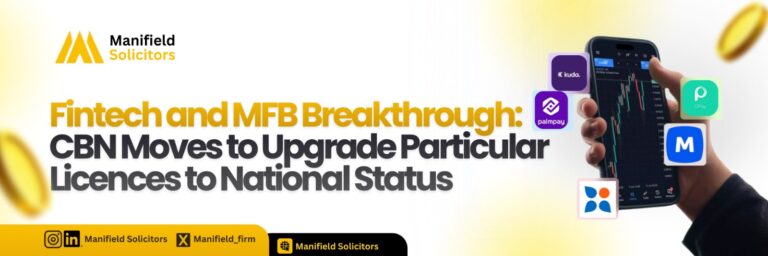Nigeria has positioned itself as a key destination for private equity (PE) and venture capital (VC) investments in Africa, particularly in sectors like fintech, e-commerce, energy, and agriculture. With a young, tech-savvy population and an expanding digital economy, the country continues to attract global and local investors through its innovative ideology and diverse ingenuity in these sectors.
However, navigating the legal and regulatory landscape remains a complex task. Investors must ensure strict compliance with financial regulations, adhere to regulatory policies, structure their investments efficiently, and protect their interests through well-drafted agreements. Startups, on the other hand, must be aware of the risks tied to investor agreements, including ownership dilution and investor exit strategies.
This article explores the critical legal considerations for structuring private equity and venture capital deals in Nigeria.
Understanding Private Equity (PE) and Venture Capital (VC)
What is Private Equity?
Private Equity (PE) refers to investments made in mature, well-established companies that require capital for expansion, restructuring, or buyouts. PE firms typically acquire a majority or full ownership stake, optimize business operations, and aim to sell the company at a profit within a specified period. These investments often involve acquiring significant ownership stake and actively managing the company to increase its value and customer base.
What is Venture Capital?
Venture Capital (VC) involves investing in early-stage, high-growth startups that have innovative business models but lack sufficient capital to scale. VC firms typically take minority stakes and provide strategic guidance to help startups grow. Unlike PE, VC investors take higher risks, as startups have uncertain revenue streams and may not yet be profitable. However, the ability to foresee the potential of the startups is the driving force for such capitalists who are ready to evaluate the business and its risk as well as project viable financial outcomes.
Key Differences Between Private Equity and Venture Capital
| Feature | Private Equity (PE) | Venture Capital (VC) |
| Investment Stage | Mature, stable businesses. | Early-stage, high-growth startups. |
| Risk Level | Lower (investing in proven businesses). | Higher (startups may fail). |
| Ownership Stake | Majority (50% or more). | Minority (10-30%). |
| Investment Size | Millions to billions of dollars | $100K to $100M |
| Capital Source | Pension funds, insurance firms, and banks. | Institutional investors, and angel investors. |
| Control | Full or majority control. | Advisory role, no control. |
| Exit Strategy | Buyouts, IPOs, strategic sales. | IPOs, acquisitions, secondary sales. |
Choosing the Right Investment Structure
Private Equity and Venture Capital transactions can take various forms, each with distinct legal and financial implications. Selecting the right structure is essential to balancing control, risk, and returns. The most common structures include:
- Equity Investments
In this structure, investors acquire shares in the startup or mature company, usually in exchange for capital. Depending on the deal, investors may receive ordinary shares or preferred shares with additional rights.
- Key Considerations:
- Founders must understand how equity dilution affects their control.
-
- Investors must understand that preferred shares often carry liquidation preferences and higher voting rights.
- The company must comply with the statutory requirements in terms of the Companies and Allied Matters Act (CAMA) 2020 in structuring shareholding agreements.
- Convertible Notes & Simple Agreement for Equity (SAFE) Agreements
These are alternative financing instruments that delay valuation discussions until a future funding round. Investors provide funding now in exchange for equity at a discounted rate in a later round or upon a trigger event (e.g., acquisition or IPO). Both Convertible Notes and SAFE Agreements are widely used in startup financing, particularly in early funding rounds. While they offer flexibility and defer valuation discussions, each has its own implications.
- Key Considerations:
- Convertible Notes accrue interest, increasing the number of shares investors receive upon conversion. SAFEs don’t have interest but may include valuation caps that affect how much ownership founders retain. Founders should negotiate valuation caps and discount rates carefully.
- Flexibility & Speed: SAFE Agreements are simpler, with fewer legal formalities, making fundraising faster. Convertible Notes involve debt terms (interest rates, maturity dates), requiring more negotiation.
- Repayment Risks: Convertible Notes are technically debt instruments with a maturity date, meaning investors could demand repayment if conversion doesn’t happen. SAFEs do not have a maturity date, reducing the risk of immediate repayment.
- Conversion Terms & Discounts: Both instruments convert into equity at a future valuation, often at a discount (e.g., 10-20%) to reward early investors. Investors may set a maximum valuation limit to prevent excessive dilution.
- Investors must define trigger events and conversion terms clearly.
- Debt Financing
Investors may prefer debt instruments, where the company borrows money and agrees to repay it with interest. Debt financing is uncommon in early-stage startups but is used in later-stage companies.
- Key Considerations:
- Repayment ability: A company must assess its ability to generate enough cash flow to meet loan repayments (principal + interest). Start-ups with unstable revenue may struggle with fixed repayment obligations.
- Interest Rate & Cost of Debt: High-interest rates can strain the company’s finances. Startups must compare loan terms from different lenders to secure the best rates.
- Collateral & Guarantees: Investors may demand collateral such as assets or intellectual property or personal guarantees, which may put the founder’s assets at risk.
- Impact on Cash Flow: Fixed monthly or quarterly repayments may limit the company’s ability to reinvest profits. Startups should ensure debt obligations align with their revenue cycle.
- Dilution vs. Control: Unlike equity financing, debt does not dilute ownership. Founders retain full control over decision-making.
- Loan Terms & Flexibility: Companies must choose terms that match their business needs. Some loans have prepayment penalties or restrictions on further borrowing.
- Default Risk & Legal Implications: Failure to repay can lead to legal action, asset seizure, or bankruptcy. Investors may impose restrictive covenants (e.g., limits on taking additional debt). Interest payments can strain a startup’s cash flow.
- Companies must comply with regulatory provisions such as the BOFIA Act (2020) which regulates certain lending activities.
Regulatory Compliance
Private Equity and Venture Capital transactions in Nigeria must comply with multiple regulatory frameworks, including those governing investment funds, foreign investment, financial services, and corporate governance. Key regulatory bodies include the Securities and Exchange Commission (SEC), the Central Bank of Nigeria (CBN), the Corporate Affairs Commission (CAC), and the Nigerian Investment Promotion Commission (NIPC).
- Securities and Exchange Commission (SEC) Rules
The SEC is Nigeria’s primary regulator of securities and investment transactions, including Private Equity (PE) and Venture Capital (VC) funds. Key compliance requirements include:
- Regulation of Private Equity and Venture Capital Funds:
-
- Under Rule 557 of the SEC Rules & Regulations, any PE or VC fund seeking to raise capital from the public must be registered as a Collective Investment Scheme (CIS).
- The SEC’s New Rules on Crowdfunding (2021) also impose restrictions on how startups raise funds publicly, impacting certain VC fundraising models.
- Equity Issuance and Disclosures:
- When issuing shares, startups must comply with the Companies and Allied Matters Act (CAMA) 2020 on share allotment and capital raising.
- If an investment deal involves a public offering, it must comply with Part XI of the Investment and Securities Act (ISA) 2007, which governs public share issuances and securities transactions.
- Foreign Portfolio Investment:
- Foreign PE or VC firms investing in Nigerian startups must ensure compliance with SEC Rules on Foreign Portfolio Investment (FPI), including proper filings for share transfers and ownership disclosures.
- Central Bank of Nigeria (CBN) Regulation
The CBN regulates financial transactions involving fintech startups, cross-border investments, and monetary policies affecting foreign investors.
- Licensing Requirements for Financial Services Startups
- Startups operating in financial services (e.g., fintech, digital banking, payments) may require licenses such as:
- Payment Service Provider (PSP) License under the CBN Guidelines on Payment Services.
- Microfinance Bank (MFB) License for lending-focused startups (CBN Revised Microfinance Policy Framework).
- Startups operating in financial services (e.g., fintech, digital banking, payments) may require licenses such as:
- Foreign Exchange (FX) Regulations
- Foreign investors must comply with CBN’s Foreign Exchange Manual, which governs repatriation of dividends and capital.
- Investments must be registered with the Nigerian Autonomous Foreign Exchange Market (NAFEM) via a Certificate of Capital Importation (CCI) issued by banks.
- Restrictions on Certain Financial Transactions
- Startups engaging in remittances or cryptocurrency transactions must comply with CBN Circulars on Virtual Currencies (2021) and CBN Guidelines on International Money Transfer Services.
- Corporate Affairs Commission (CAC) & Nigerian Investment Promotion Commission (NIPC)
- Business Registration & Compliance:
- All PE and VC-backed startups must be incorporated under CAMA 2020 and meet annual CAC filing requirements.
- Foreign investors acquiring shares in a Nigerian company must notify the CAC to reflect the changes in ownership structure.
- Foreign Investment Regulations:
- Under Section 20 of the Nigerian Investment Promotion Commission Act, all foreign investors must register with the NIPC to qualify for investment incentives and legally repatriate profits.
- Investors seeking tax holidays may apply under the Pioneer Status Incentive (PSI) Scheme, regulated by the NIPC.
- Restrictions on Certain Sectors:
- The Nigerian Local Content Act restricts foreign ownership in key industries (e.g., oil & gas, telecoms), requiring partnerships with local investors.
Key Terms in Investment Agreements
Negotiating investor agreements is crucial to protecting both founders and investors. Key clauses include:
- Valuation and Equity Allocation:Investors seek fair pricing, while founders want to retain control. Valuation may be based on discounted cash flow, comparable transactions, or revenue multiples.
- Investor Rights:Investors may request board seats to influence decision-making, Investors get paid before common shareholders if the company is sold or Investors maintain value if new shares are issued at a lower valuation.
- Exit Strategies:Investors need defined exit routes, including Trade Sale (Selling the company to another business), Initial Public Offering (IPO) -listing shares on the NGX or foreign markets, and Secondary Sale – Selling shares to another investor or existing shareholders.
Taxation & Repatriation of Funds
Foreign investors must consider tax and currency controls:
- Capital Gains Tax (CGT) – 10% on gains from the sale of shares.
- Withholding Tax (WHT) – 10% on dividends and interest payments.
- Certificate of Capital Importation (CCI) – Required for repatriating foreign investment returns.
Dispute Resolution Mechanisms
To prevent costly litigation and ensure efficient conflict resolution, investment agreements typically include:
- Mediation and Arbitration Clauses – Agreements often require parties to attempt mediation first, with arbitration as the final binding resolution. Mediation and Arbitration are governed by the Arbitration and Mediation Act 2023, with proceedings typically held in Lagos under institutional rules (e.g., the Chartered Institute of Arbitrators (UK) Nigeria Branch).
- Litigation (Limited Scope) – While litigation is generally avoided, parties may seek interim relief from Nigerian courts, such as injunctions, to prevent irreparable harm before arbitration is concluded.
- Drag-Along and Tag-Along Rights – These provisions protect investor and shareholder interests during exits:
- Drag-Along Rights allow majority shareholders to compel minority shareholders to sell their shares during a sale to a third party, ensuring a smooth exit.
- Tag-Along Rights protect minority shareholders by allowing them to join a sale under the same terms as majority shareholders, preventing exclusion from lucrative deals.
- Shareholders’ Agreements – These agreements establish governance structures, voting rights, exit strategies, and dispute resolution frameworks to minimize conflicts and align investor and founder interests.
By incorporating these mechanisms, PE and VC deals provide structured, fair, and legally enforceable solutions for resolving disputes.
Conclusion
Private equity and venture capital investment in Nigeria offer immense opportunities, but investors and startups must navigate regulatory, financial, and legal challenges. Ensuring compliance, structuring deals correctly, and negotiating investor agreements wisely can mitigate risks.
For insights on structuring Private Equity and Venture Capital deals in Nigeria, consult relevant legal frameworks and professional guidance.







Add your first comment to this post